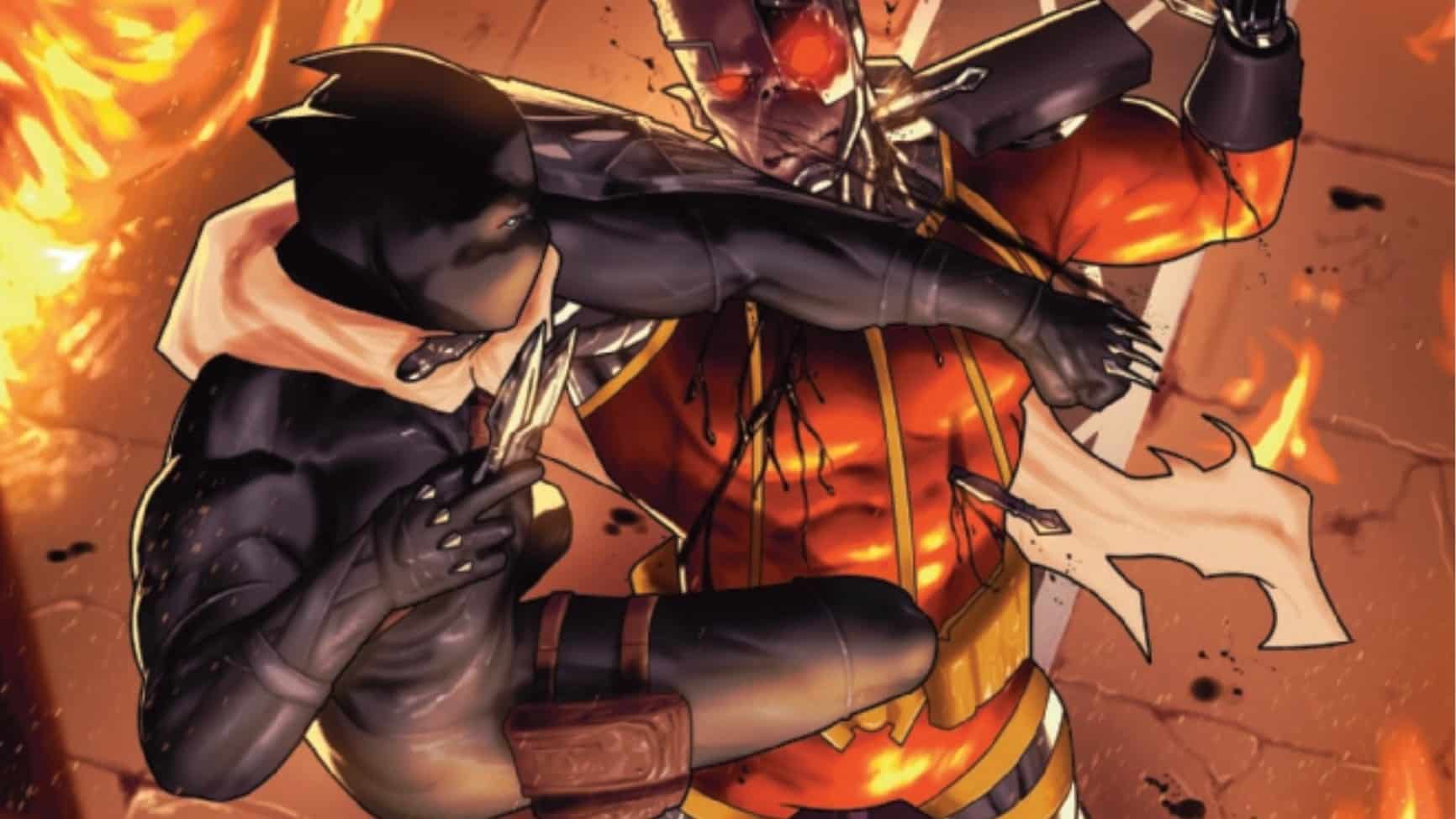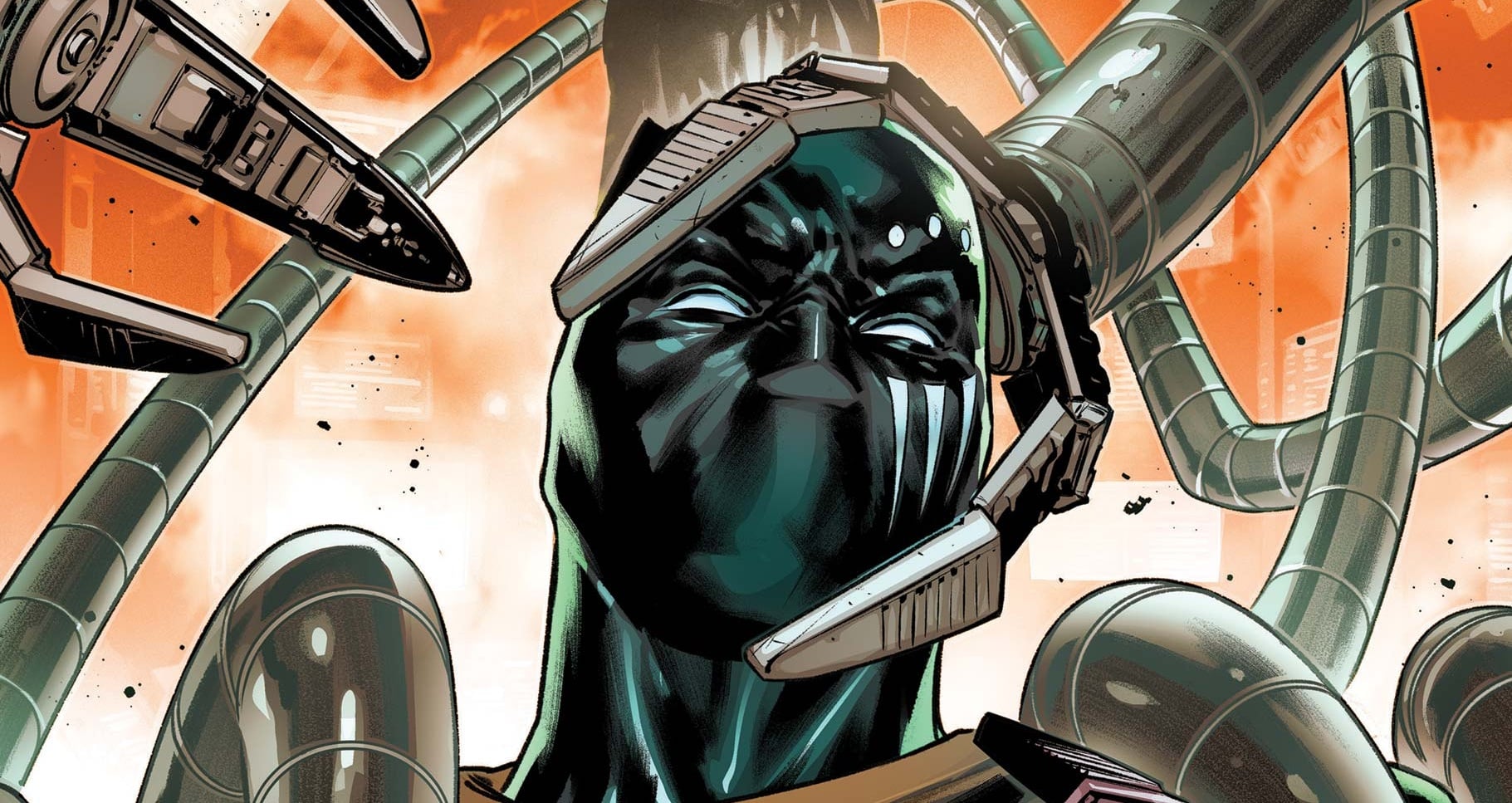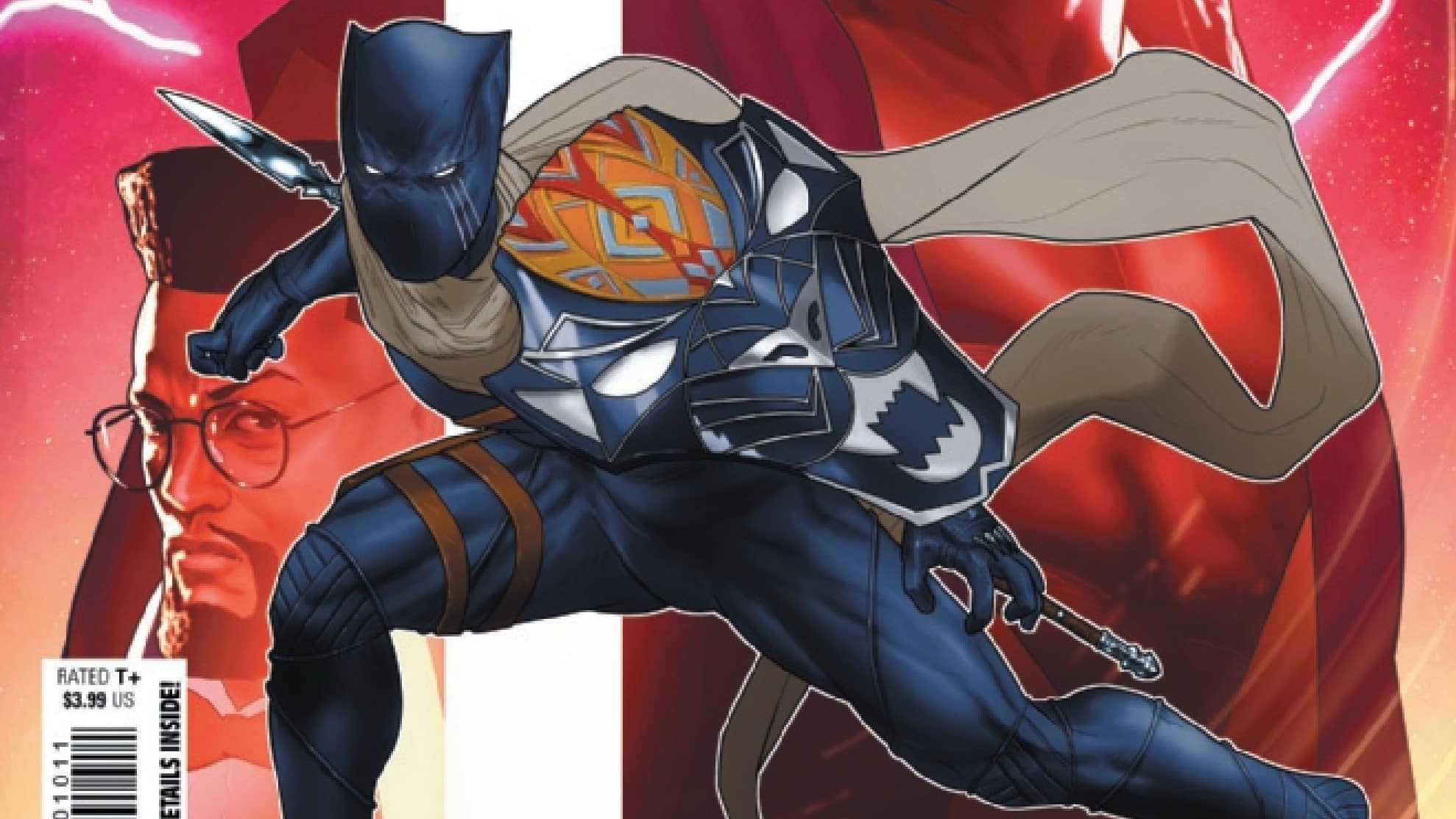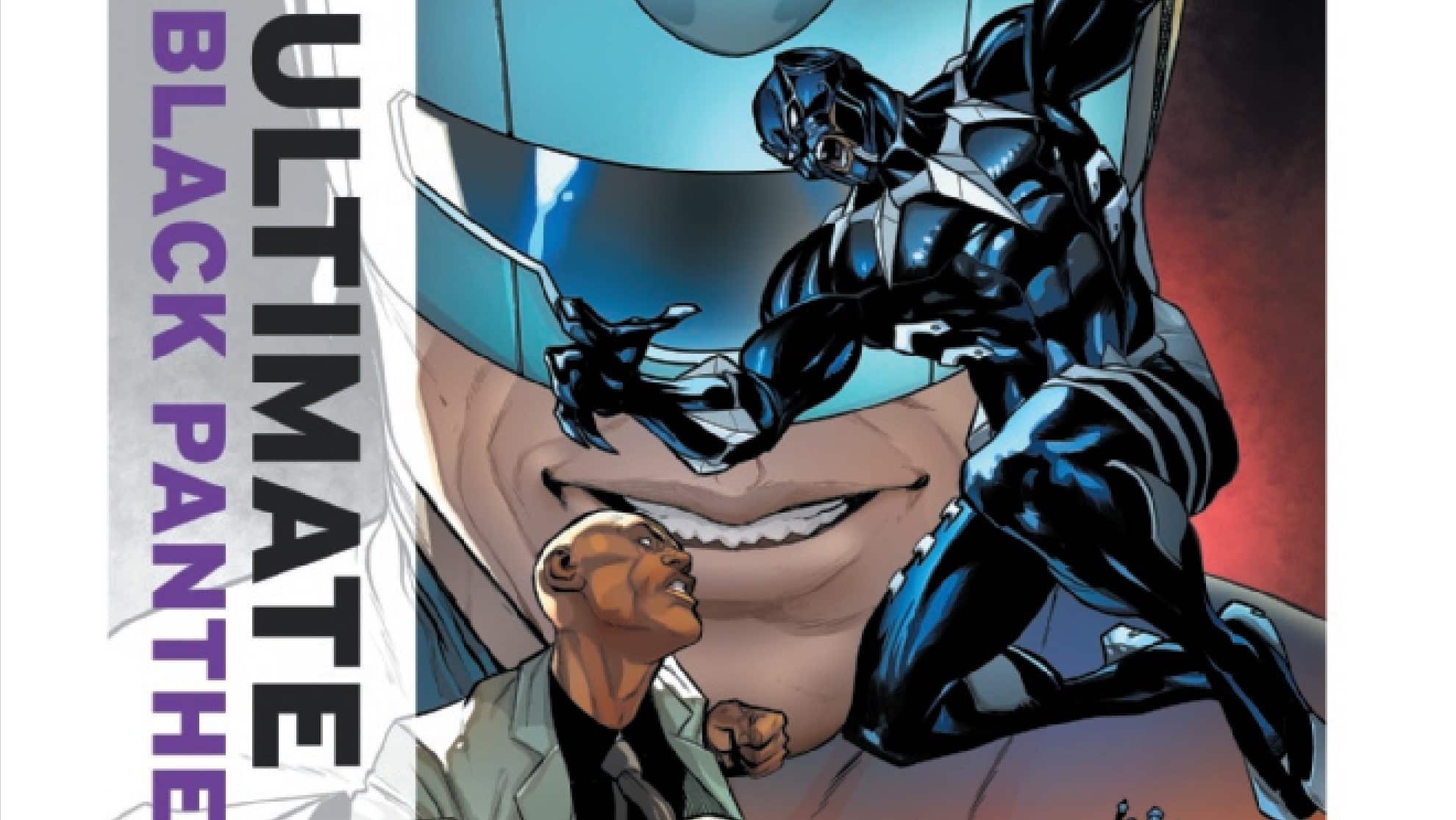Two of Birnin T’Chaka’s most powerful crime families are about to become one in a wedding that is the talk of Wakanda. Neither Black Panther nor Beisa are on the guest list, but that won’t stop them from making an appearance at this who’s-who of Wakanda’s rich, powerful and dangerous, especially with the assassin Deathlok as one of the wedding crashers. But this review really isn’t about that. Black Panther #4 is written by Eve Ewing, drawn by Chris Allen and Mack Chater, inked by Chater and Craig Yeung, colored by Jesus Aburtov and lettered by Joe Sabino.
The first trans student I worked with was many things: hyper-intelligent, thoughtful, confident and an asshole, as most teenagers are.
She was, in other words, normal.
And because she was so normal, it was all too easy to believe that my advocacy for her, limited that it was, was sufficient. That the ease by which we made adjustments to accommodate her, the ease by which we preemptively tried to protect her from adults (always adults, almost exclusively adults) that may have sought her harm was sufficient.
It was not.
When my friend Carmela (not her real name) transitioned, living her life fully, openly, after spending years trying to find the language to articulate who she was, it was easy, all too easy, to like her social media posts and send her well wishes and defend her in places where she couldn’t hear but she could still feel. And because it was easy, oh so easy to be so right (and maybe self-righteous), I might be lulled into believing that sufficiency and ease were intertwined.
They are not.
Beisa, the antagonistic anti-hero of Black Panther #4 is trans. Her story, slowly teased out over the past few months, has come to a crescendo, with her motivations clearly, directly displayed. T’Challa, apologetic for misgendering her, quickly pivots, continuing to parse her person for support and guidance in his isolation.
It’s easy, all too easy, to see how simple his support is; how natural and clearly he’s articulated his apology, and how his apology doesn’t change his perspective of her, and think it sufficient.

That progress is made because a trans character can get a starring role in a major comic book (even a cover!), a book that treats her journey as not just an aside, but the central theme of the book: that home is where we can be free to be, and we have the freedom to choose where that home is.
Poignant. Profound. Simple to digest.
Easy, even.
And yet.
Beisa’s journey has been anything but simple. Excommunicated from a home where she has some semblance of prominence, she now exists on the periphery, eking out an existence by selling and stealing secrets, still wearing a mask, still hiding who she is.
A beisa is often the prey of ravenous predators. They can fight, sure, but they must flee to survive.
Beisa is still fleeing. Beisa is trying to survive.
Survival is anything but easy.

It was not easy, I imagine, for Carmela to recognize who she is, accept who she is, embrace who she is, and deal with the many repercussions — professional and personal — that come with demanding your humanity be accepted. The same I imagine for my student.
The same (to a much lesser degree) I imagine for Eve Ewing, who certainly had to pitch this idea to editorial, knowing there may be blowback from certain corners of fandom who want a Black Panther book to focus its energy on fleshing out the Panther more (a critique I share) and who believe that any character not adhering to stereotypical gender binaries are a cynical betrayal of some sort (a critique I abhor and fully expect to take root, loudly, on the internet).
The same, I imagine, for a writer who’s thought and questioned so much, and yet still denies themselves the pride of using affirming language to correctly communicate who they are, lest they lose the last bit of acceptance their psyche stands on.
Acknowledgement, too, is anything but easy.
But I digress.
There is more to the comic, of course: The action scene between T’Challa and Deathlok is wonderfully paced and illustrated, though its inclusion and completion right at the issue’s outset makes the fight feel more like prologue than anything else. It’s heartening to see T’Challa fighting enhanced enemies and winning relatively quickly — a reminder that while his mind and heart are at the center of his stories, his body and abilities are as effective as ever. The conversation between T’Challa and his (maybe not so) good-natured “cousin” sparks intrigue; the end of the comic, with a shootout at a roller rink, feels intentionally precedent as, from my balcony in DC, I see more and more bodies broken from bullets from real-life beefs.
Still.
The centerpiece of the comic, literally and figuratively, is Beisa. It’s easy to see her as a righteous representation, to see T’Challa’s easy acceptance of her as a model for us all, to believe that by buying the book and defending her from inevitable hate, we are doing enough.

And enough is easy.
But easy is never enough. Not for Beisa, who is still estranged from her family, still on the run both in her unmasked and masked form, and still likely has some tricks up her sleeve and alliances to unveil.
Not for T’Challa, who, in his good-natured arrogance, thinks his presence must bring peace, but may be sparking more harm than good in a community that needs so much more good.
Not for our trans friends and families and selves, who must be intentional about everything all day, so people can feel ease and operate with ease and treat them with respect that should be due them regardless.
The comic is a good, easy read, to be sure. But the work to fulfill the promise of the comic, to fulfill the promise of my student, to fulfill the promise of my friend, will require work.
Beisa is ready. So is T’Challa.
So, maybe, finally, am I.
Are you?
Disclaimer: As an Amazon Associate, ComicsXF may earn from qualifying purchases.
A proud New Orleanian living in the District of Columbia, Jude Jones is a professional thinker, amateur photographer, burgeoning runner and lover of Black culture, love and life. Magneto and Cyclops (and Killmonger) were right. Learn more about Jude at SaintJudeJones.com.






